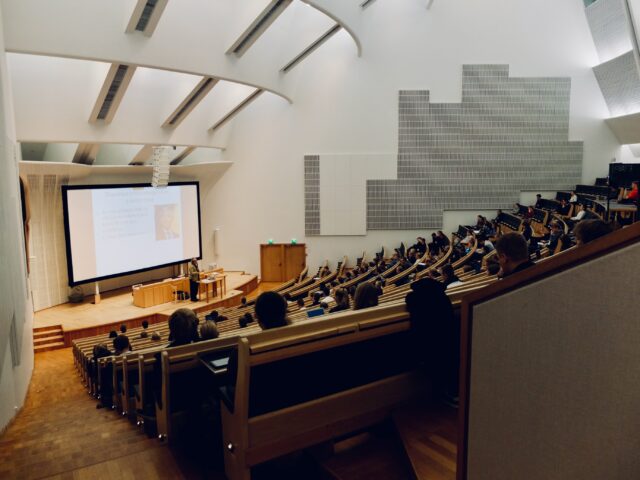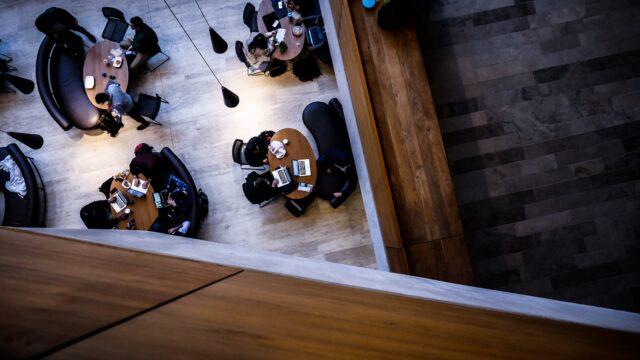The Ontario Undergraduate Student Alliance (OUSA) has released an Indigenous Students Policy Paper that highlights the challenges that Indigenous students face in postsecondary institutions and provides recommendations for addressing these issues. The challenges discussed include a lack of Indigenous leadership in postsecondary institutions, barriers to access, colonial and harmful university culture, a lack of non-Indigenous Allies, and barriers for Indigenous faculty and staff. The policy paper includes a variety of recommendations, such as supporting Indigenous self-determination, enhancing access to university, building non-Indigenous allies, and providing support for Indigenous faculty and staff. “The provincial government has yet to make an open commitment to decolonization efforts and supporting Indigenous self-determination,” reads the release. “In order to truly commit to truth, reconciliation, and the advancement of Indigenous and non-Indigenous allyship, the provincial government has a duty to openly express support for decolonization efforts and Indigenous self-determination.”

Indigenous Top Ten News
February 9, 2022
The University of Ottawa has launched a certificate in Indigenous law, which is reportedly the first French-language program of its kind. The year-long certificate will introduce students to the legal systems of Indigenous peoples in Canada and will be taught primarily by Indigenous instructors. The program will be taught using Indigenous approaches and experimental and holistic methods, and will provide a smooth transition for students looking to participate in the Licentiate in Law (civil law) program. “Establishing this certificate is one more step on the road to reconciliation,” said UOttawa vice-dean academic Sophie Thériault. “This unique program will further access for a greater number of Indigenous students to legal education and professions, which will deepen reflection on the interaction between state-derived and Indigenous law, as well as increase access to justice for Indigenous peoples.”
Two schools – one in Ontario and one in British Columbia – have announced that they will be retiring their names in favour of new ones. Nanaimo Ladysmith Public Schools (SD68) will be renaming Coal Tyee Elementary School, which was originally named for Che-Wech-I-Kan (Coal Tyee). The Nanaimo Bulletin reports that the namesake is now regarded as a tragic figure, as his interactions with colonial peoples led to destructive resource extraction. In Ontario, the Durham District School Board (DDSB) has announced that the Sir John A Macdonald School in Pickering will be renamed in honour of Wiikwemkoong water walker Josephine Biidaasige Mandamin. The school will be called Biidassige Mandamin Public School in recognition of the Wiikwemkoong Unceded Territory band member. “It is pretty cool that the school board is honouring my aunt like this,” stated Stephanie Peltier of Wiikwemkoong, of the name change. “It is amazing because they are honouring her for her work in protecting water and awareness of how sacred and important water is. It is a step toward Truth and Reconciliation.”
The Métis Nation British Columbia has conducted a thorough review of its Skills Training, Employment & Post-Secondary (STEPS) funded program guidelines and has approved a new set of program guidelines. The new guidelines, which will come into effect on April 1st, include increased wrap-around support for Métis learners and trainees who are enrolled in school and training; simplified application and assessment processes; and increased support offerings for those interested in attending postsecondary or training programs. “Supporting Métis learners and innovating our program guidelines to better meet the evolving needs is critically important,” said MNBC Minister of Postsecondary Education Susie Hooper and MNBC Minister of Employment and Skills Training Dean Gladue. “We are pleased to see more modernization in STEPS that will see greater wrap-around supports for our Citizens looking to advance their education.”
Wilfrid Laurier University professor Ciann Wilson has created a digital archive of Afro-Indigenous histories called Proclaiming Our Roots. Wilson’s project included filming the stories of communities through videos and vlogs to document stories of Black and Indigenous solidarity and the contributions the Afro-Indigenous community makes to Canadian society. Wilson says that Afro-Indigenous mixed ancestry is not often discussed, and that many remain unaware of the way that the two communities collaborated to navigate and resist colonial systems. “The current existence of the way that Canada exists only exists because of the ways in which certain groups of people were exploited for labour on stolen land from another group of people,” said Wilson. “And so our struggles are deeply intertwined, both historically and contemporarily.”
North Battleford Comprehensive High School (NBCHS) has created an Indigenous Student Council group. The lunchtime club is run out of the school’s Gateway to Success room and provides input on celebrating events such as Aboriginal Storytelling Month and Indigenous Peoples Day. “I started it because I want our Indigenous students to feel they can make change in our [school] and feel like they have a voice, and a space where they can share their opinions,” said Native Studies Teacher Madison MacKeracher, who is helping organize the group. So far, nine youth have signed up for the council, including three who are also part of the Indigenous Advisory Council through Living Sky School Division. Battlefords Now reports that the school also offers smudging ceremonies twice a week to provide students with a good start to the week and provide a positive action to send them out into the world. “The importance of smudging personally is about connecting with my identity and who I am as an Indigenous person. That’s something that I talk with my kids about too,” she said. “It’s a positive space where we can all learn about one another and who we are.”
The University of British Columbia is expanding its Salmon Science Camp for Nisga’a thanks to funding from the Ărramăt Project. Using the funding, Dr Andrea Reid, principal investigator of the Centre for Indigenous Fisheries at UBC, will be expanding the camps with a focus on conservation and biodiversity and exchanges with Indigenous communities. Individuals from neighbouring Nations will be able to attend the camps to learn about fish and preparation methods and engage in cross-cultural learning with other youth from across British Columbia. “These camps open a door to science and immersive learning experiences for Indigenous youth that might not necessarily be available due to the location of Gingolx, and they get to see a whole range of Nisga’a citizens as experts and scientists,” said Reid in an interview. “This might mean they begin to see science as a future avenue for themselves, and view caring for salmon in the way Nisga’a have always done as not only an act of stewardship, but a truly scientific practice.”
As people across Canada mourn with Williams Lake First Nation after the announcement of possible unmarked gravesites of children at the former St Joseph’s Mission residential school site, several postsecondary institutions and schools have made announcements to publicly stand alongside the nation. Brock University’s Aboriginal Student services team is offering students a space to meet with elders to mourn. Fleming College has asked community members to wear orange to recognize the unmarked graves. The University of Saskatchewan held a virtual gathering and asked participants to wear orange shirts to show solidarity. Selkirk College has encouraged community members to continue to learn about the past to further reconciliation. Thompson River University shared links to emotional, mental, and spiritual health supports and resources and urged the community to remember the children and stand in support of the First Nation.
The Government of Yukon and the Chief’s Committee on Education have formally announced the creation of a new school board in Yukon: the First Nations School Board (FNSB). The school communities of Chief Zzeh Gittlit School, Ross River School, St. Elias Community School, Johnson Elementary, Watson Lake Secondary, Nelnah Bessie John School, Takhini Elementary School, and Grey Mountain Primary will be transferred to the board for the 2022-23 school year. The announcement has been hailed as a historic milestone and an example of reconciliation that will give Indigenous people more control over their children’s education. The school board plans to formalize on-the-land teaching such as camps that teach students about animals and how to survive on the land. “[The school board] is essentially amplifying what we’re already doing,” said Heidi Warren, principal at Nelnah Bessie John School. “Instead of, ‘oh yeah we’re going to do this camp,’ as an add-on to the curriculum, this will be the curriculum.” Elder David Johnny Sr, who runs on-the-land camps, said that it will take time for the school to come out from “being under the thumb of the government” but that the move will lead to positive long-term changes.
The Manitoba Indigenous Cultural Education Centre has taken advantage of the pandemic closure to digitize its vast audio and visual collection. “The people that don’t know about the centre are really shocked when they come here and see everything that there is to learn and see and do,” said Dene Sinclair, who is Anishinaabe from Peguis First Nation and works as a consultant with the centre. Sinclair explained that the digitization effort includes taking photographs of the material collection and editing and transcribing interviews with First Nations language speakers from the 1990s. The centre also transitioned its “language tables,” which connected fluent Cree and Ojibwe speakers with learners, to an online learning format and has brought in new students. “To me, that’s probably one of the coolest things that we were able to start doing in the last few months,” said Sinclair.
